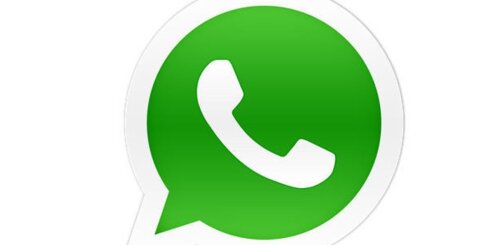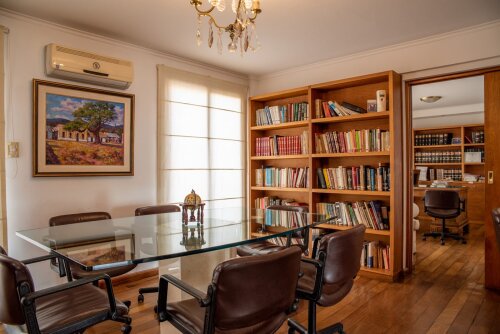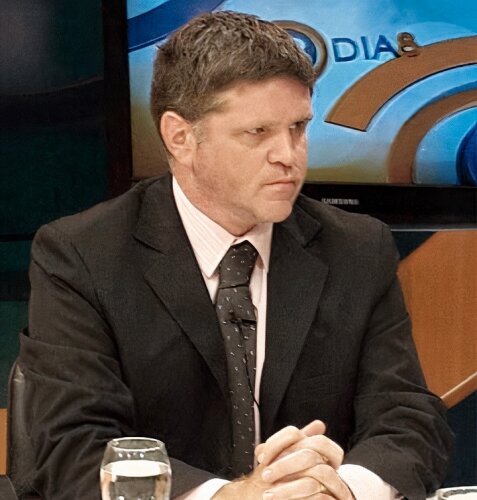Best Juvenile Law Lawyers in Córdoba
Share your needs with us, get contacted by law firms.
Free. Takes 2 min.
List of the best lawyers in Córdoba, Argentina
About Juvenile Law in Córdoba, Argentina
Juvenile law in Córdoba is the body of rules, procedures and institutions designed to protect the rights of children and adolescents and to respond to conflicts that involve them - whether those conflicts are civil, family, administrative or related to alleged criminal behavior. At the national level, Argentina's Law 26.061 - the Integral Protection of the Rights of Children and Adolescents - establishes principles and obligations that guide provincial action. Córdoba implements these principles through provincial legislation, specialized courts and public agencies focused on childhood and adolescence.
In practice this means that minors receive special treatment from the justice system: proceedings are generally faster, more confidential and oriented to protection, education and social reintegration rather than purely punitive measures. Different kinds of courts and public bodies handle family issues, custody, adoption, protection from abuse and juvenile criminal responsibility.
Why You May Need a Lawyer
Juvenile law cases often affect very personal and sensitive rights - parental authority, custody, access, protection from abuse, adoption, school exclusion, or criminal responsibility. You may need a lawyer in situations such as:
- A child or adolescent is accused of committing a crime or is the subject of a police investigation.
- There are disputes about custody, visitation or parental authority following separation or divorce.
- Child protection authorities are considering removing a child from the home for alleged neglect or abuse.
- You wish to start or oppose an adoption, or to request guardianship or foster placement.
- You need to request urgent protective orders for a child facing violence or risk.
- You require legal advice about minors in conflict with school rules or administrative sanctions.
- You need to seek reparations, compensation or enforcement of a child’s rights against a public agency.
- You require guidance on access to social services, health or education rights for a child or adolescent.
In these situations a lawyer protects procedural rights, explains available alternatives, helps collect and present evidence, negotiates with authorities and represents the child or caregiver in court.
Local Laws Overview
Key legal principles and local structures relevant in Córdoba include:
- National framework - Law 26.061: establishes the protection approach, best-interests principle, participation of the child and priority of preventive and integrative measures.
- Provincial implementation - Córdoba applies national standards through provincial regulations, protocols and specialized courts. Provincial authorities create programs and resources to assist children and families.
- Specialized courts and prosecutors - Matters involving minors are handled by specialized judicial bodies: family or children's courts for protection, custody and adoption; juvenile criminal courts or specialized magistrates for alleged offenses by adolescents. There are also dedicated prosecutors who work on child protection and juvenile responsibility.
- Age and criminal responsibility - While the general protection framework covers those under 18, criminal responsibility is treated under a juvenile regime for adolescents. In Argentina the legal adulthood threshold is 18, and the juvenile system contains specific procedures and sanctions that differ from the adult criminal system.
- Priority on protection and education - Decisions impacting minors should emphasize protection, rehabilitation and social reintegration. Detention is considered a last resort and alternatives to deprivation of liberty are preferred when appropriate.
- Family law interaction - Custody, parental authority, guardianship and adoption are governed by civil and family rules combined with the protection framework. Courts will consider the best interests of the child, stability and respect for family ties when ruling.
- Confidentiality and records - Proceedings involving minors usually have confidentiality protections. Records in juvenile proceedings are often subject to special rules about access and sealing to protect the child’s future.
Frequently Asked Questions
What is the age at which a young person can be held criminally responsible in Córdoba?
Legal adulthood is 18 years. The juvenile justice regime applies to adolescents. In Argentina, the treatment of alleged offenses by those under 18 follows special juvenile procedures. There is a distinction in practice between younger children who are treated under protection measures and older adolescents who may face juvenile responsibility procedures. A lawyer can explain precisely how age will affect a specific case.
If a police officer detains a minor, what rights does the minor have?
A minor has the right to prompt information about the reason for detention, to have a parent, guardian or responsible adult notified and present, and to legal assistance. Procedures for questioning and detention of minors must follow special safeguards - confidentiality, presence of a legal representative and priority referral to juvenile authorities rather than adult courts.
Can a child be removed from home immediately for alleged abuse?
Yes, child protection agencies or the courts can order immediate protective measures if there is imminent risk to the child. These measures can include temporary removal to a safe place, placement with relatives or emergency foster care. Such interventions should be provisional, formally justified and followed by a judicial review to determine longer term measures.
How do custody and visitation decisions work after separation in Córdoba?
Family courts decide custody and visitation based on the best interests of the child. Courts consider emotional ties, the child’s stability, parental capacity and the child’s views when appropriate. Shared parental authority or structured visitation schedules are common. A lawyer can help present evidence and propose parenting plans focused on the child’s wellbeing.
What protections exist for victims of domestic or sexual abuse who are minors?
Minor victims benefit from protective measures such as orders restricting contact with the alleged aggressor, emergency shelter placement, medical and psychological care, and priority judicial attention. Prosecutors and specialized agencies must ensure confidentiality and provide support services. Reporting to the competent authorities triggers protective procedures and investigations.
If a teenager is accused of committing an offense, what outcomes should they expect?
The juvenile system prioritizes educational and restorative measures - such as community service, probation, treatment programs or supervision - over incarceration. Detention is supposed to be a last resort. The exact outcome depends on the offense, the adolescent’s history, risk assessment and available alternatives. Legal defense is crucial to ensure procedural protections and to seek alternatives.
How does adoption work and what is the role of the courts?
Adoption procedures involve evaluation of the adoptive family, consent requirements, termination or suspension of parental authority when appropriate, and court approval. The process is intended to ensure the child’s best interests and legal safeguards. Provinces apply national standards and also maintain registries and supervision mechanisms during the placement and after finalization.
Are juvenile records accessible to employers or third parties later in life?
Juvenile records are subject to confidentiality protections and often cannot be freely accessed by employers or the public. There are procedures to seal or restrict access to juvenile records in order to prevent long-term stigmatization. Specific rules vary depending on the type of proceeding and the provincial regime, so legal advice is important to understand record access and expungement options.
Who can report suspected child abuse or neglect and what happens after a report?
Anyone can and should report suspected child abuse or neglect. Certain professionals have mandatory reporting duties. After a report, child protection services assess the situation, may open an investigation and can request protective measures or judicial intervention. The process aims to protect the child while assessing family needs and providing services.
How do I find legal help if I cannot afford a private lawyer?
There are several options: request a public defender or legal aid through the provincial Public Defender's Office or the Justicia gratuita programs; seek help from specialized non-governmental organizations that assist children and families; contact the Colegio de Abogados de Córdoba for referrals or pro bono services; and consult social services that may facilitate legal support. For urgent protection matters you can also ask the court or child protection agency to appoint immediate legal representation.
Additional Resources
Useful types of resources and institutions to contact in Córdoba include:
- Provincial child protection agency or secretariat responsible for childhood and adolescence - for reporting, assistance and protective measures.
- Specialized juvenile courts and family courts - where formal proceedings are filed and heard.
- Public Defender's Office and provincial legal aid programs - for free or low-cost legal representation.
- Fiscalías or public prosecutors specialized in juvenile responsibility and child protection - for criminal and protection investigations.
- Colegio de Abogados de la Provincia de Córdoba - for lawyer referrals and professional guidance.
- National and international organizations focused on children - for technical guidance, advocacy and support services.
- Local social services, health and education authorities - to secure medical, psychological and schooling assistance.
Contacting these bodies early can speed access to protection, legal representation and social supports.
Next Steps
If you or a child you care for needs legal assistance in juvenile matters in Córdoba, consider the following practical steps:
- Document the situation - write down dates, events, witnesses, medical or school records and any communication relevant to the case.
- Seek immediate protection if there is danger - contact emergency services, the child protection agency or the police if a minor is at immediate risk.
- Contact a lawyer experienced in juvenile or family law - if you cannot afford one, request a public defender or legal aid through provincial services.
- Preserve evidence - keep medical reports, messages and any records that support the child’s account, and avoid providing statements without legal advice when possible.
- Request the appropriate specialized body - family court for custody and parental authority issues, juvenile court or prosecutor for alleged offenses, and child protection services for welfare concerns.
- Attend all hearings and appointments - punctual participation helps the court evaluate the case and shows cooperation with protective measures.
- Use multidisciplinary support - ask for psychological, educational or social work interventions recommended by the court or protection services.
- Follow up on records and long-term solutions - discuss with your lawyer options to protect the child’s future, including sealing records or seeking rehabilitative programs for adolescents.
Taking early, informed action increases the chances of a protective, timely and appropriate solution. A local attorney with experience in juvenile matters can explain specific provincial procedures in Córdoba, represent the child or family and help coordinate with public agencies and social services.
Lawzana helps you find the best lawyers and law firms in Córdoba through a curated and pre-screened list of qualified legal professionals. Our platform offers rankings and detailed profiles of attorneys and law firms, allowing you to compare based on practice areas, including Juvenile Law, experience, and client feedback.
Each profile includes a description of the firm's areas of practice, client reviews, team members and partners, year of establishment, spoken languages, office locations, contact information, social media presence, and any published articles or resources. Most firms on our platform speak English and are experienced in both local and international legal matters.
Get a quote from top-rated law firms in Córdoba, Argentina — quickly, securely, and without unnecessary hassle.
Disclaimer:
The information provided on this page is for general informational purposes only and does not constitute legal advice. While we strive to ensure the accuracy and relevance of the content, legal information may change over time, and interpretations of the law can vary. You should always consult with a qualified legal professional for advice specific to your situation.
We disclaim all liability for actions taken or not taken based on the content of this page. If you believe any information is incorrect or outdated, please contact us, and we will review and update it where appropriate.










